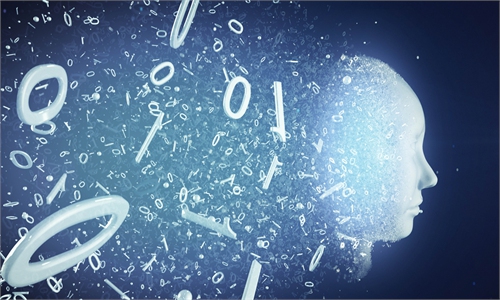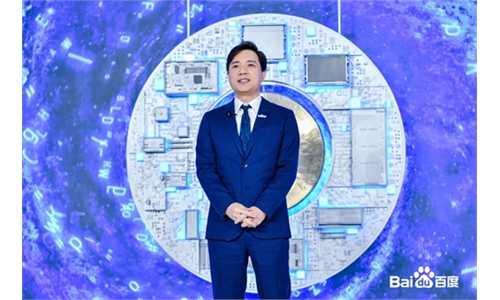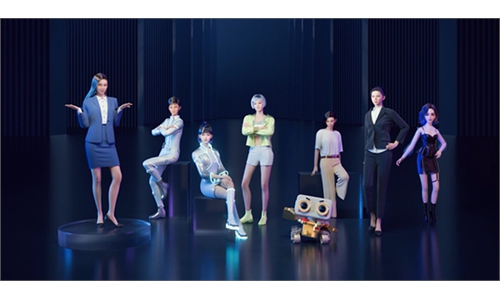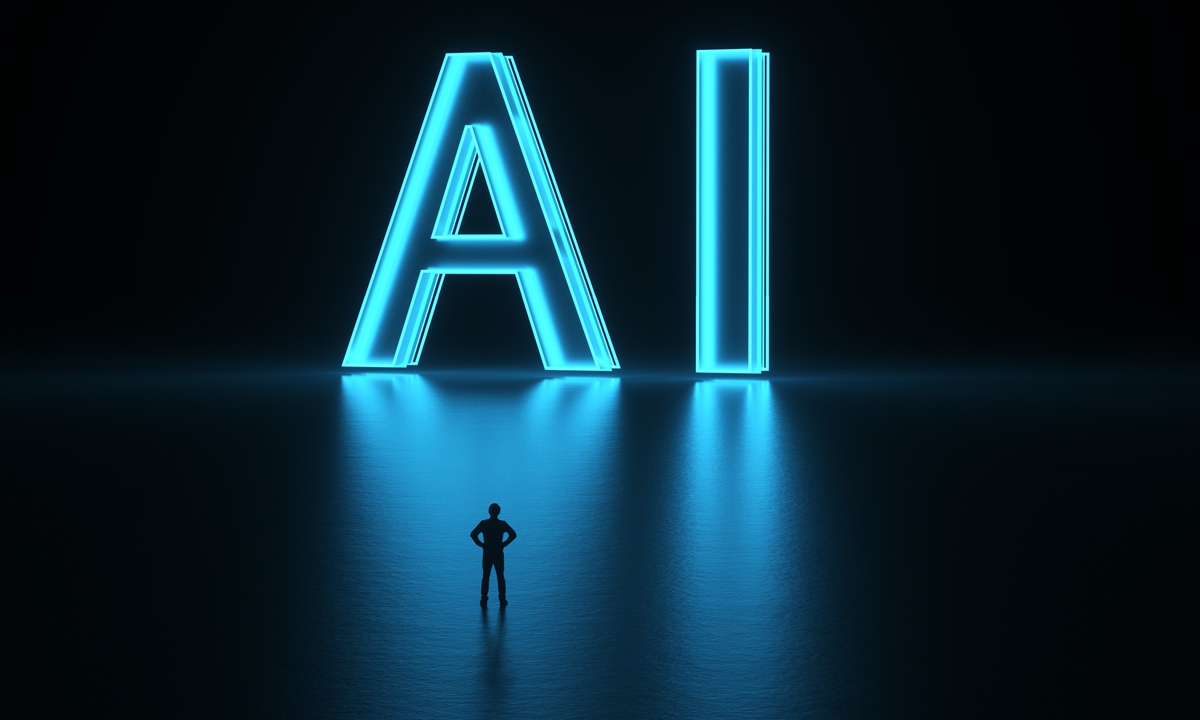
Photo: VCG
"Miss Jian looked at the man on her right side with some confusion. Just now the man talked to her in a sharp tone of command, which didn't seem to fit the role of her husband. In her mind, this was not a real marriage…" Photo: VCG
This is the opening of a Chinese romance novel that reads a little different from other ordinary stories.
What makes it special is that it wasn't written by a human being but by ChatGPT, currently the internet's most popular chatbot.
The advanced AI wrote the 800-word story in just one minute after novelist Chun Shanlei (pen name) typed in a couple of key words from a new novel she is working on.
Chun laughed out loud after reading it. "I give this piece a 7 out of 10," she said.
Will creative occupations such as painters, authors and journalists be replaced in the future by tools such as ChatGPT? Questions like this have troubled many people like Chun.
Not enough for literature
Seemingly powerful and almighty, AI-generated content (AIGC) have some obvious limitations.
A major defect in ChatGPT's literary writing is that the stories it produces are "too simple," noted 10-year novelist Chun, whose more than novels have earned millions of views online.
"The narrative is too straightforward and plain, and there are no twists," Chun said, commenting on the "Miss Jian story" ChatGPT produced. "Stories like this one do not draw me in."
Apart from the plot, Chun said that ChatGPT's writing style is less personalized and human so may be more suited science or technology essays instead of literature works.
"And ChatGPT is probably not that good at writing in Chinese. The stories it wrote read a bit strange, like they were translated from English," she added.
ChatGPT is also a hot topic in China's film and television industry these days. Liu Zhenqi, a producer with eight years of work experience, told the Global Times that her company's script writing team has talked about it.
Although she has not tried ChatGPT herself, Liu said she has read some of the horror stories it has produced, which were "well-structured" but didn't scare her.
"Compared to the AI-written horror stories, the fact that 'AI can write a horror story' scares me more," Liu joked.
Liu acknowledges that AI chatbots like ChatGPT, although still flawed, still pose a threat to the current culture creation industry in China in the near future.
In fact, before the hit ChatGPT, some AIGC websites in China, such as Caiyun Xiaomeng, have helped novelists complete web novels.
"However, due to limited databases, some AI generated novels have been accused of plagiarism," Wang Xin, who has been a web novelist for seven years, told the Global Times on Wednesday.
"Since they are quite new and there are not so many regulations, plagiarism is hard to define as there are not enough legal cases to refer to," added Wang.
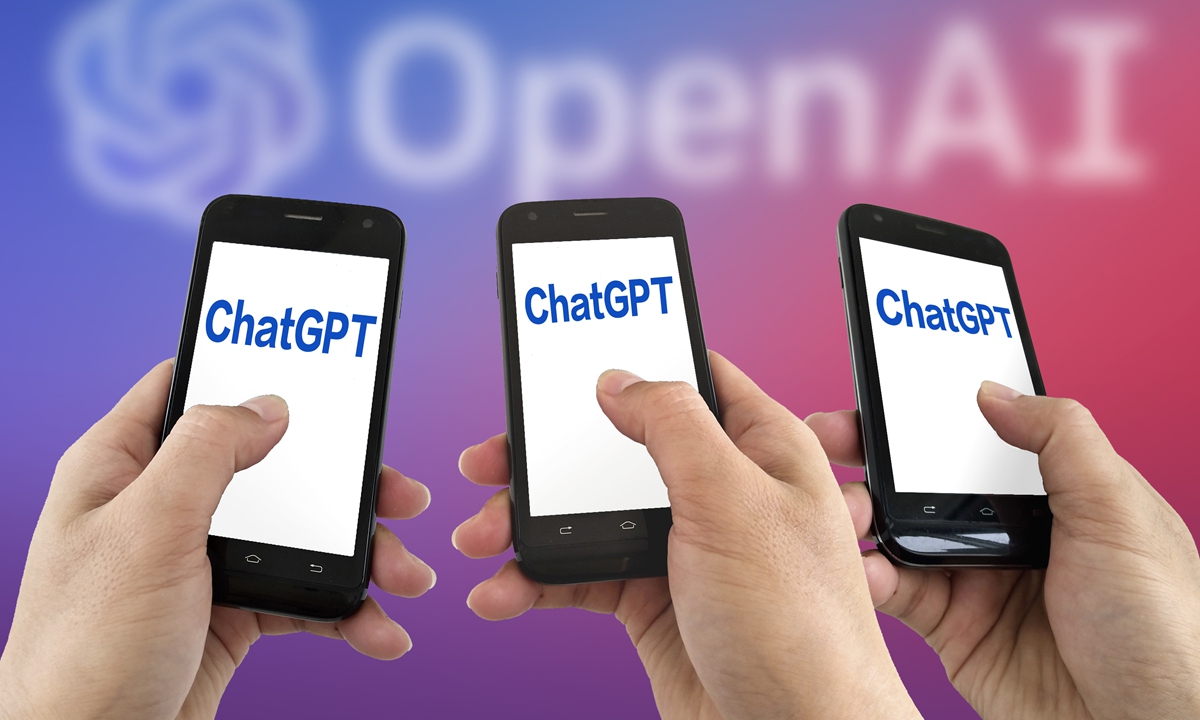
Chun also expressed concerns about copyright infringement, as the stories ChatGTP produces are based on a database containing numerous unauthorized works from global authors.
"If ChatGPT is introduced into China someday, I think it will be boycotted by many Chinese authors," she told the Global Times.
There are still other potential issues that need to be considered as well, Liu noted.
"In fact, in today's market many 'cheesy' cultural products are highly commercial," Liu said. "They are made to cater to popular tastes."
For these works, spiritual depth or innovation is less necessary and AI chatbots can easily produce them within seconds, she explained.
"Those who live on writing these kinds of cheesy novels or plays may be replaced by more-competitive AI," Liu explained.
"This is nonetheless not a 100 percent bad thing, as the development of AI chatbots will eventually push authors to work harder for better stories," Liu said.
"The involvement of AI will create higher standards," she told the Global Times.
Rising popularity
Ever since the research company OpenAI introduced its AIGC technology ChatGPT on November 30, 2022, the text-based AI tool soon became the latest fad worldwide.
Only two months after its launch, monthly active users rose to 100 million, making it the fastest growing consumer tool in history, according to reports.
As the new-born chatbot has been gushed about by tech venture capitalists and users, this AI tech is now sparking debates about whether it poses a threat to the careers of future human writers.
This question has not come from nowhere, as the shock brought by the launch of the AI chatbot program has surpassed the expectations of many people.
In September 2022, US game designer Jason M. Allen was drawn into the AI-generated content controversy after he used AI art generator Midjourney to create an award-winning painting titled Théâtre D'opéra Spatial.
In April 2022, OpenAI's other AIGC tool DALL-E 2, which can imitate the creation of masterpieces and exquisite art, was introduced.
With tech insiders hailing AIGC as a significant revolution in the content productivity, other tech companies have also decided to jump on the bandwagon with their own chatbots.
On Tuesday, Google said it planned to introduce its own chatbot Bard to compete with ChatGPT.
Chinese tech giant Baidu also said it will launch its chatbot ERNIE Bot in March.

